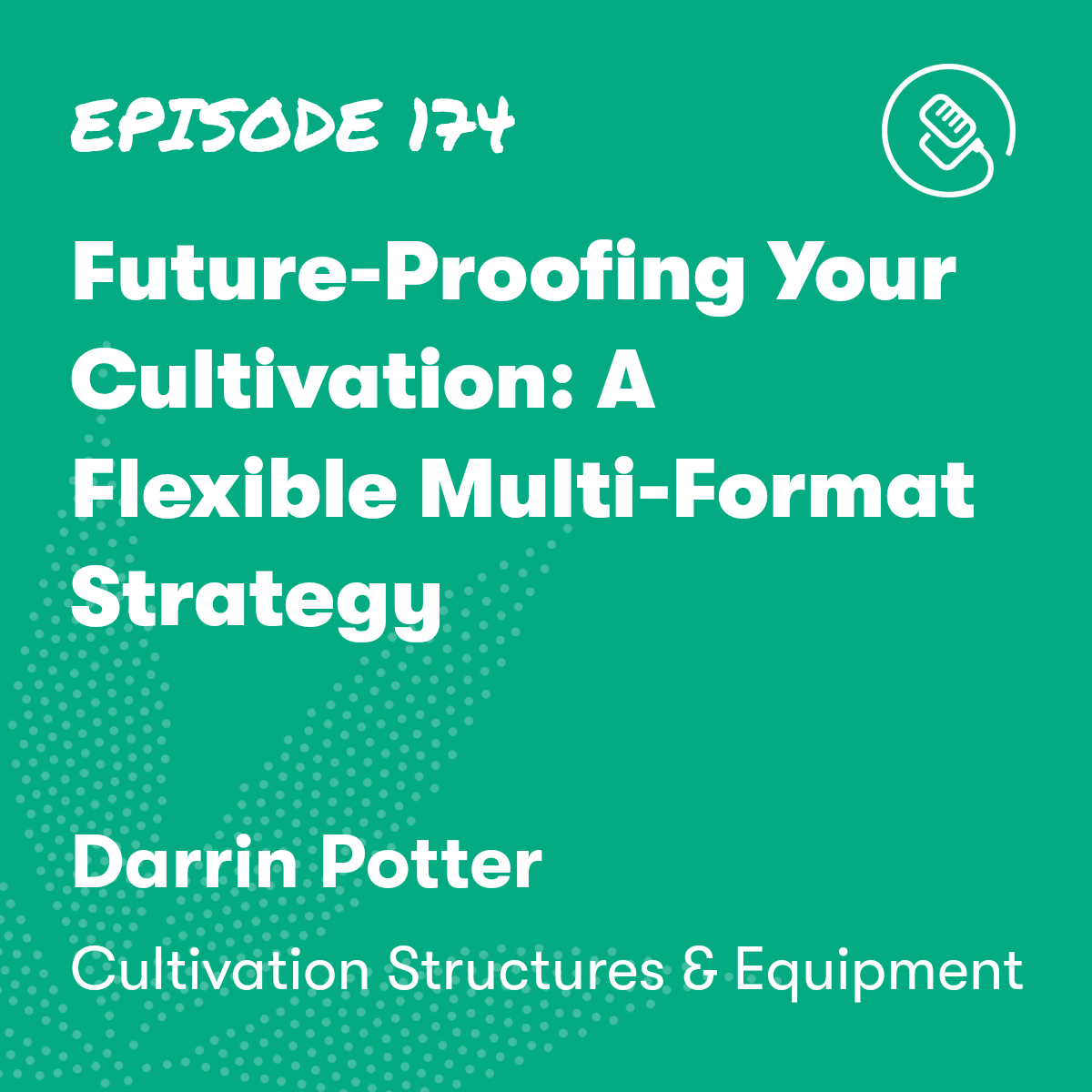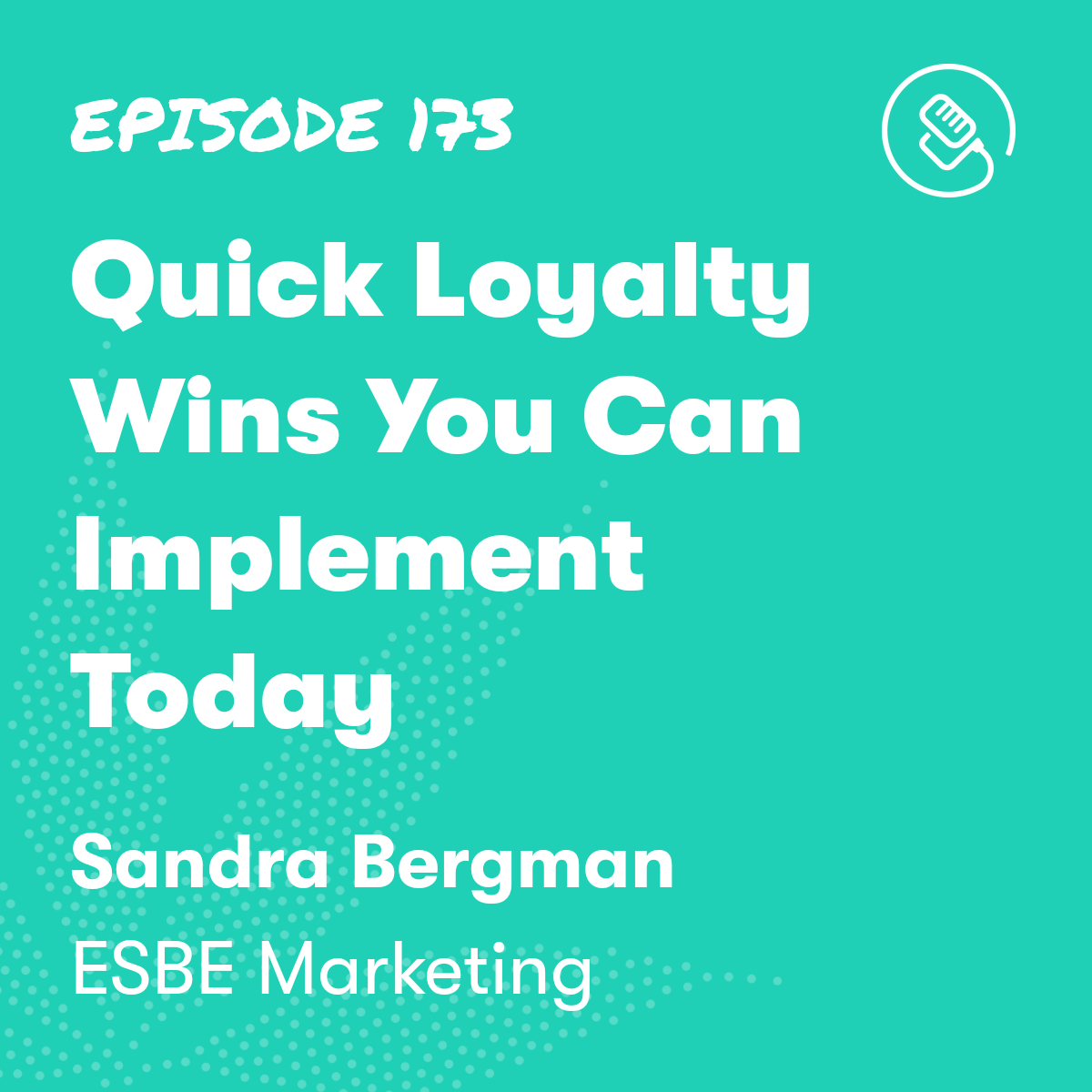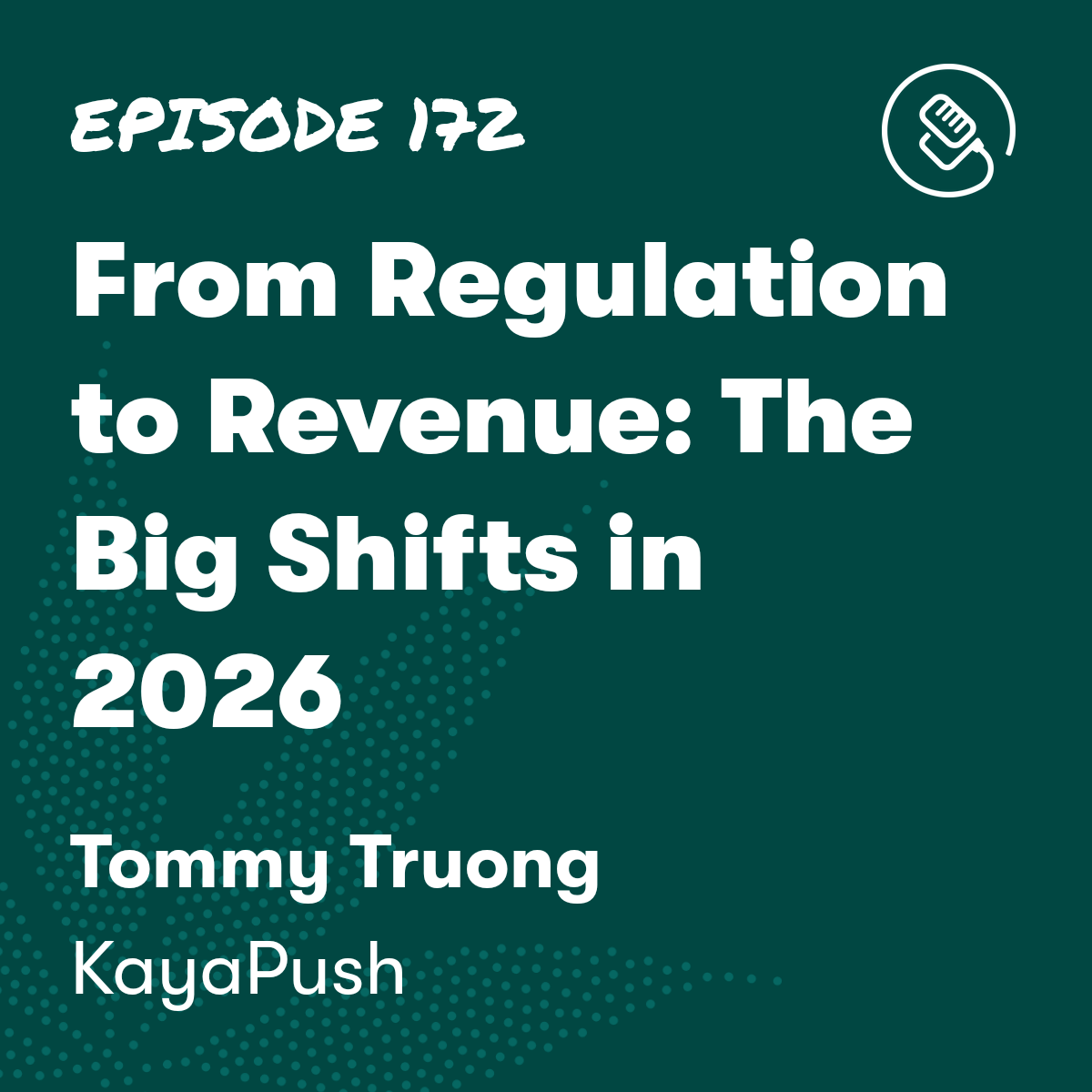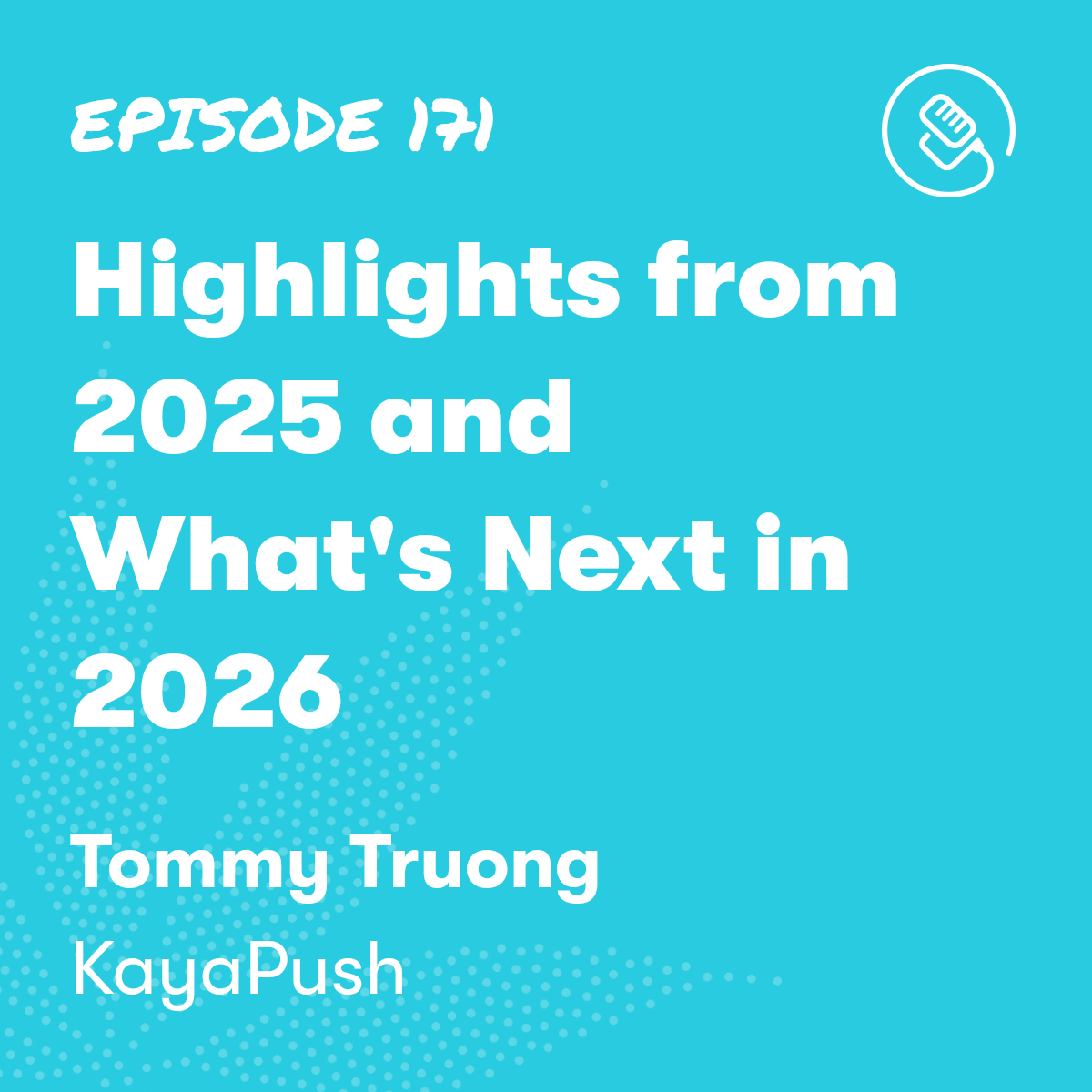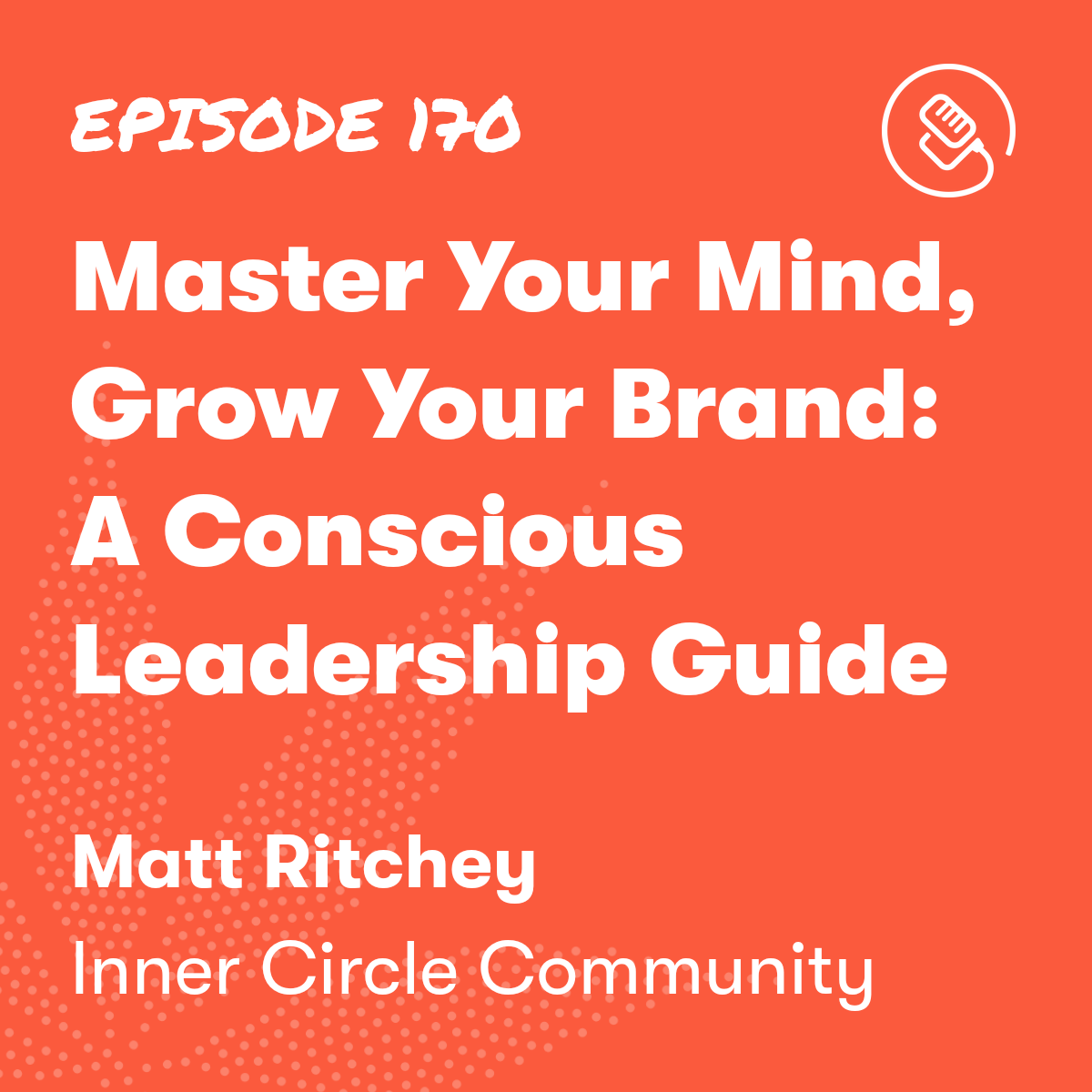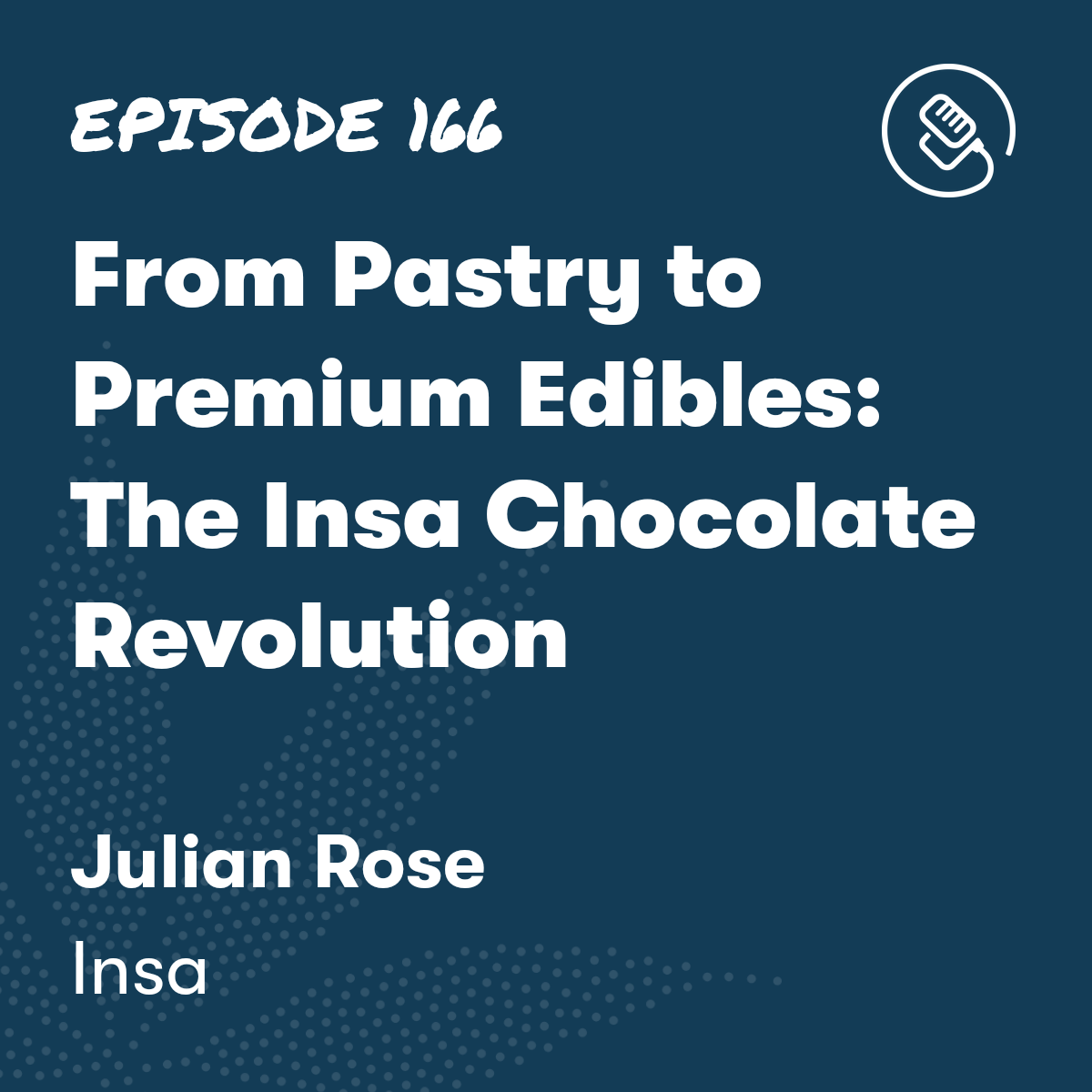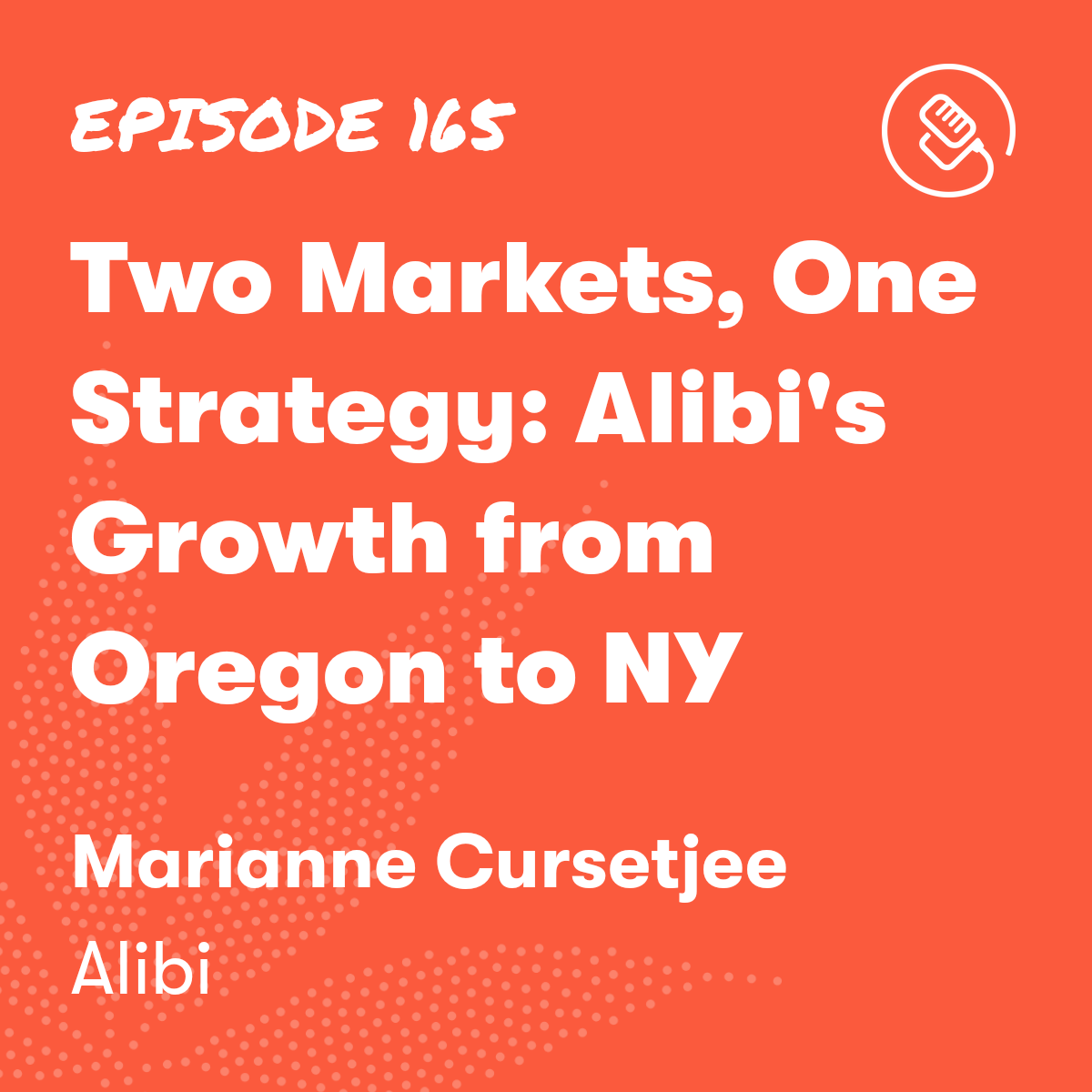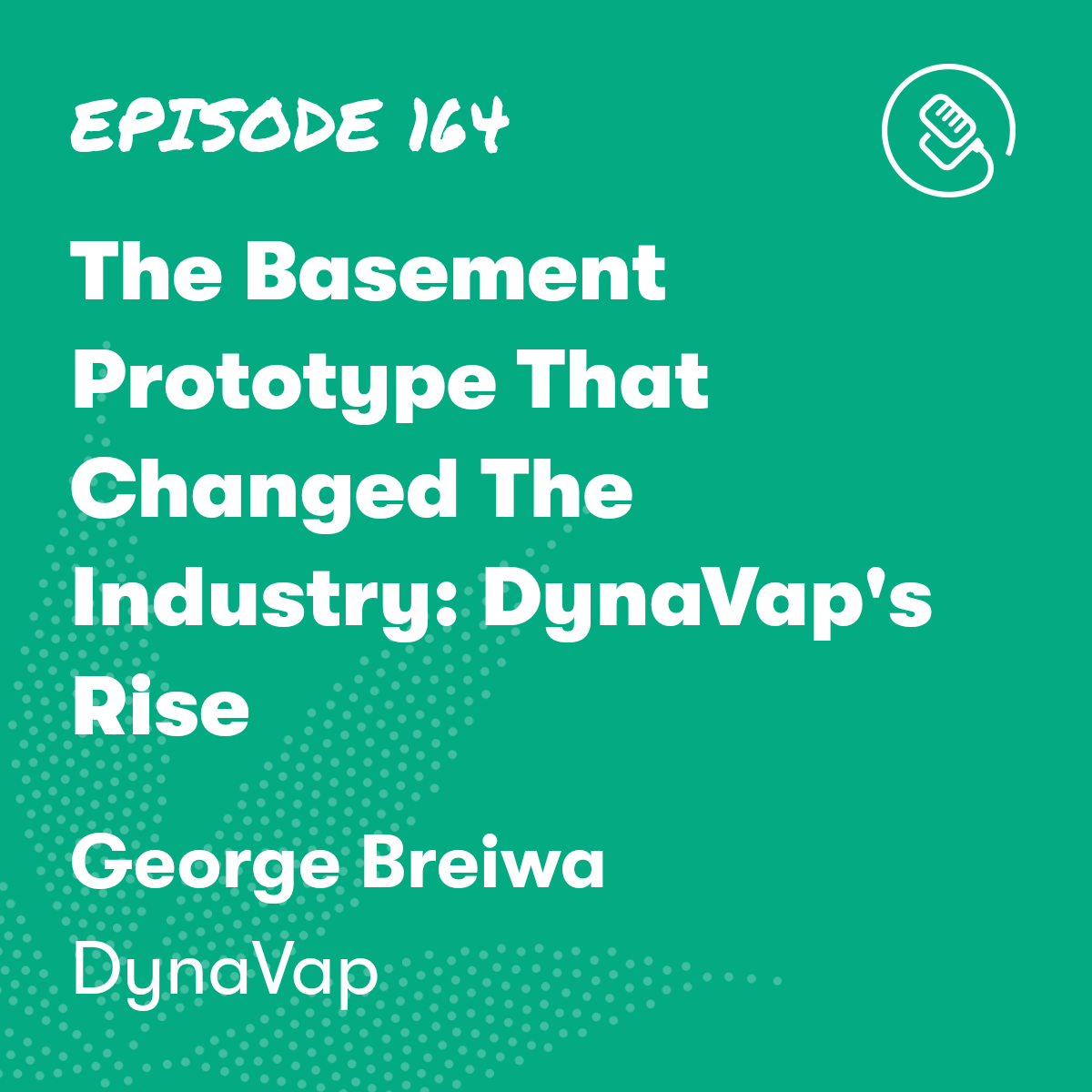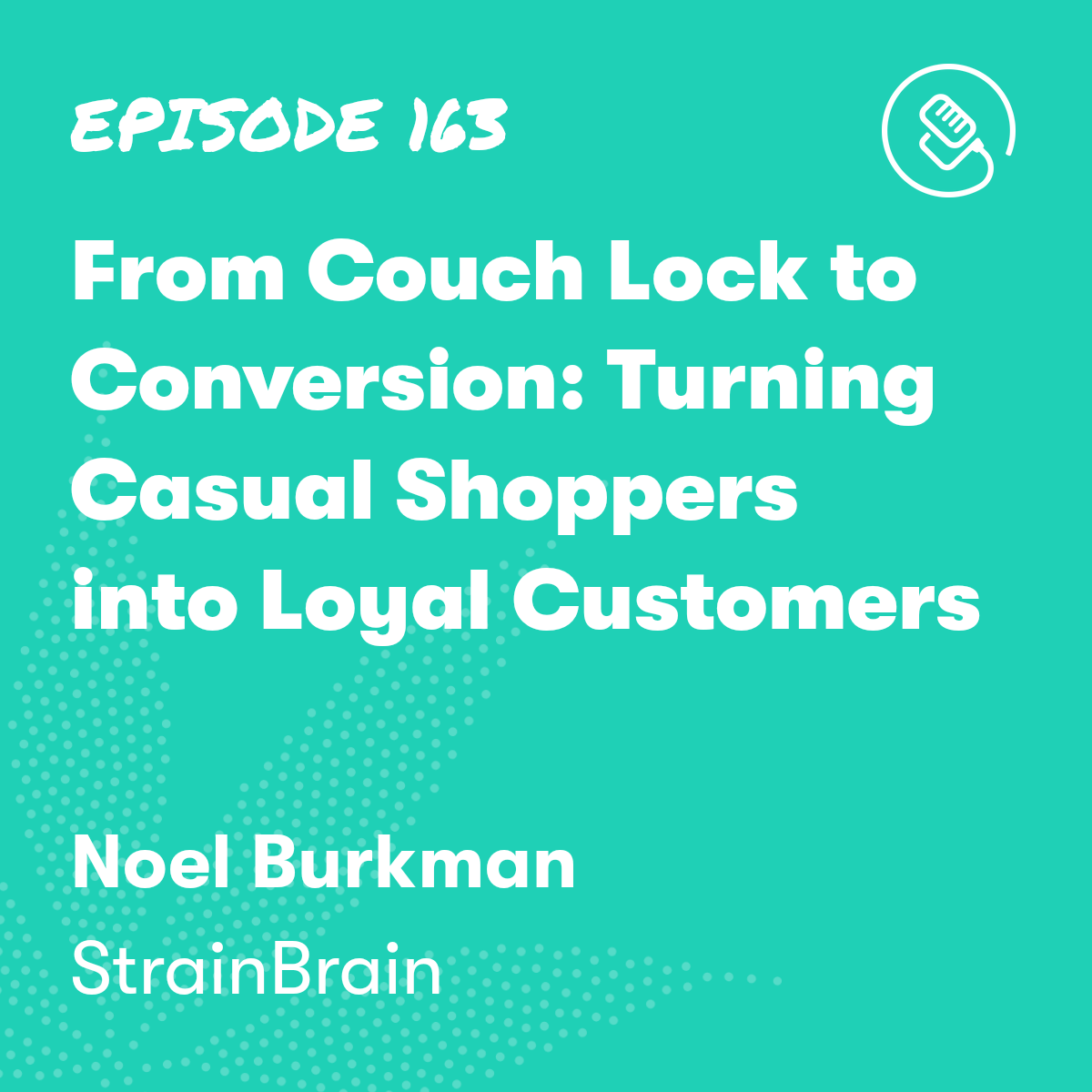

Building a Cannabis Coalition: How and Why w/ Gahrey Ovalle from LICC
Episode Description

Episode Transcript
Intro: [00:00:00] Welcome to the KayaCast, the podcast for cannabis businesses looking to launch, grow, and scale their operations. Each week, we bring you interviews with industry experts and successful retailers, plus practical tips and strategies to help you succeed in the fast growing cannabis industry.
Tommy: Hey, everyone. In this episode, we are joined by Gary, the president of the long island cannabis coalition. Gary talks about his journey as an entrepreneur, what he's learned as well as an update on what's going on right now in long island. I hope you guys enjoy this episode.
Well, Gary, thank you so much for joining us today.
Gahrey Ovalle: For sure, Tommy. Pleasure to be with you. Thank you.
Tommy: I know you as the president of the Long Island Cannabis Coalition,
but I know that there's so much more to you than being involved in the LICC. So I first wanna ask you was what was the [00:01:00] first business that you started?
Gahrey Ovalle: Um, wow. So first business, uh, I guess that'd be in the construction industry, right? Uh, I kind of got in there just trying things on for size, uh, you know, as an employee kind of doing different things and I quickly recognized that I was able to scale certain concepts and really kind of do a lot of these things. On my own. So I immediately jumped in, you know, inside of my first year in that space and started my own company. And I was doing construction here in New York, uh, just over a decade or so. And, uh, you know, obviously all through Long Island area, including the three, uh, you know, the, the boroughs rather, uh, the five boroughs, uh, certainly in the Tri-state and eventually started to fly across the country doing major projects.
Tommy: So what, area of construction that you got into?
Gahrey Ovalle: Yeah, so it was just all phases of construction, this particular outfit. Uh, and, you know, I was picking up all of the trades at a certain time and for a while, after a while I was quickly running those larger projects and I was helping and overseeing a lot of these [00:02:00] things. And before I knew it, I, uh, I just, I just recognized, you know, there was an expertise that I had that a lot of others didn't have, uh, while they were on site. And it drove me to just. Start doing this for myself. And in that way, uh, I was able to kind of get bigger, uh, be, you know, very successful, you know, in that space. And it allowed me, uh, like I said, to just be home more often when my wife needed it or when the children needed it, or if I just needed some time for myself.
Tommy: What was the first mistake that you made? In your business career.
Gahrey Ovalle: Oh my goodness. Uh, all of them. So I didn't have, uh, you know, any real mentors in that space. I was kind of just doing what I knew how to do. You know, certainly at a leadership capacity, I. Um, just, you know, being a really good student in school, I was able to apply a lot of those lessons, you know, in real life and in, in these spaces I was working. Um, being a leader in those spaces, being able [00:03:00] to create community and speaking to others and kind of, uh, dictating what they should or shouldn't do or kind of putting things together. I just recognized. I was successful in those spaces, but I didn't have any real experience, you know, building this company out.
What does that look like when I have to, you know, form these corporate documents and create certain legal protections. Um, I didn't know how to navigate, you know, insurance conversations and, you know, dealing with the municipalities and getting, uh. Licenses and, and securities and a bunch of different spaces.
So I had to make all of those mistakes, you know, hiring the wrong people for the right job, you know, uh, I had to, I, I had to one, go through the physical mistakes of it and kind of, uh, you know, fail forward. And then two, really start to identify. There are people who have already done this before me. I don't need to struggle the way I'm struggling. I need to find people who have been there, coaches and mentors, people who have done it already had success. And once I stumbled into that space, that's when [00:04:00] I really started to minimize the mistakes I was making, and I was then able to start having a lot more success at a much faster rate.
Tommy: You've hit something that I, I feel like it's, is an understatement. Oftentimes business owners, they, they think about how to solve a problem. Like, how do I solve a problem? What do I do? Instead of thinking who? It's always who first? Then how, later? What, what was that spark in, in you just having an, an epiphany like, Hey, I, some this has been solved before. Who should I bring on my team?
Gahrey Ovalle: Yeah. Well, I, I think it's just a matter of like most
things, you know, when you first get into it, you throw a lot of effort and energy towards it, right? Because you need to. Make some headway and make some progress while you're learning and navigating. Once I had a chance to kind of finally see, alright, I'm making progress, I'm doing well, but I'm still not doing as well as I would like. Right. Uh, [00:05:00] it was in those first few years. Right. The first three to four years that I really, I. I started to get a hang of what I was doing. I was finding some success and I finally had some room to sit down and think about these problems. And I've always been pretty cerebral in my, in my approach to a lot of things. And in that way, I was able to sit down and think about all the ways in which I was coming up short. And one of the things I've always known is. We don't have to invent any wheels, they're already created. Right? What we wanna do is identify people who have a good firm understanding of that and can help you manage the space that you're in.
'cause we're not building anything new. Uh, everything pretty much already exists in this moment and especially, you know, for me, 25, almost 30 years ago, uh, so at that point in time, it was really just after a few years in. I had some time to think about it. I had some time to review and reflect, and that personal assessment, that's probably the, the best place, you know, where we start to recognize what we're [00:06:00] coming up short, what we're doing well, what we're not.
And it was in one of those periods that really led me down the path to finding others who had done it before, who had been successful. And, uh, that started that networking, uh, that really led to, to my greatest success.
Tommy: What, what, what was the initial hurdle that you had, like the first initial hurdle? Like the wall, like you hit a wall. What? What was it
as a first?
Gahrey Ovalle: it was, you know, doing all of these things from scratch by myself. I didn't have help, I didn't have a business partner and I was. I was always worried about like, man, where is this next job gonna come from? Where is this next paycheck gonna come from? I thought that that was the hardest problem for me to solve, And what I quickly realized was that no, you know, there are problems all over the place. You just have to make yourself available to them and they'll come find you and create their opportunity. It was in the employees. Finding really good employees was the greatest hurdle and the greatest problem. And when I started to recognize that [00:07:00] that was the bigger problem of my problems, that's when I recognized, man, I need to become a better leader in this space.
I need to learn how to recognize and hire better people. Where do I go to find them? What are the questions that I need to ask? How do I secure that they're the right people for me in this moment? And when I started to identify that problem there, right? Uh, not so much. Where's the next project coming from?
But how do I get the best people on my team to make sure that we can continue to grow as I bring in more opportunity? That was the one that really started to drive me towards increment, you know, from incremental growth to that exponential growth.
Tommy: Who was your first key employee that really shaped kind of the business?
Gahrey Ovalle: Um, I don't know if there was a first, uh, I think it was more just the accumulation of everyone I was dealing with, you know? Uh, oftentimes you kind of hire who's in your immediate area, friends and family, people you know, and even though you get along with them, maybe they're not the best fit for the. For the [00:08:00] task at hand, you know, so that's where I recognize, you know, that largest saying, don't mix, you know, family and friends and business and things like that.
I started to realize why that's true and, and all the different ways in which that's true. And it's not always a sinister thing, it's just. Finding the right people for the right job, right? The best fit for what it is you're doing. And in that way, uh, I think the, the cumulative experience of hiring people I knew, or hiring people that weren't exactly qualified drove me towards finding those people who were better qualified in the exact right person I needed.
Tommy: I see that a lot in the cannabis industry as well let's hire people that we trust versus people that we need for the business.
Gahrey Ovalle: That's a, and that's just a, you know, it's a rookie mistake, you know,
it's also, um, know, it's, it's, it's one of those ways in which we quickly recognize, man, that's not the right person. I. That I need. I certainly like them, I know them, but I need someone who has a particular [00:09:00] expertise in this particular area. That's who I need to go find. And this is where we kind of operate in our zones of strength, right? And excellence. Recognize what you do well and handle that. Recognize what you don't do well and find people who can fit that, fill that problem for you. Uh, here is where partnership, right? I always recommend people.
Don't go at it alone. Find someone in the people you need to, to go at it with. If you can identify a really good partner, and that's what really transformed it for me, right? Once I found good partners in spaces, that's when, uh, my. Just, you know, the timeframe in which it took me to overcome things or get past things or to succeed through things. Uh, the ability just kind of. Ramp from one project into the other, or one industry into the next and be successful in all of those spaces. That's where it really started to just take, uh, an unbelievable turn because I didn't have to know everything. I was able to rely on my partner who knew certain areas that I wasn't strong in, and I could [00:10:00] trust that they were gonna do the right thing for me and I would do the right thing for them.
And that really started to make the difference.
Tommy: So it was when you brought in partners on board that can help you really have defined lines of roles and responsibilities. So you're not doing it all.
Gahrey Ovalle: Yeah, definitely. You can't, you know, as an entrepreneur, I think that's the. So it's a startup business, right? There's so much to be done in the beginning, you know, and not just the beginning, the middle, and the end, right? Uh, and the same is true inside this cannabis space. So whether you're talking about brand development, finding partners, finding locations, hiring a team, you know, actual operations, running the business, um, just surviving the early years of emerging market, you wanna make sure that with all of those things that have to be done and all of the hats that have to be worn. You are not wearing all of the hats, right? And that's the mistake that most entrepreneurs make. They think there's another problem that has to be done. Let me take off my operations hat and I'm gonna put on my salesperson hat and the sales is done, and I'm gonna take that off and I'm gonna put on my marketing [00:11:00] hat.
And before you know it, you're wearing all the hats in your business, just running yourself tired and not really creating the, the effect and the effort you know that you really need in those spaces. And it doesn't serve you well, you know, uh, business is complicated, you know, and, um, it's critical that you make sure that you're not doing everything by yourself, uh, because you can't do everything by yourself, nor should you.
Tommy: I know that your, and I'm hoping going to be in the cannabis industry very soon. So what is happening in Long Island today?
Gahrey Ovalle: Yeah. Long, so Long Island, you know, at the end of the day, uh, they are one of the, you know, largest communities, cannabis communities in New York. And they are also one of the most restrictive communities in reference to cannabis retail. Uh, we are finding that, you know, almost 90% of all of the municipalities on Long Island have decided to opt out of cannabis retail. We also know that at a [00:12:00] constituent level, almost 60 and 70% of their constituents. Want cannabis retail, they want access, uh, not just for themselves, but for the adult use market that wants access to cannabis. They recognize that that community should absolutely have access to what it is they want, and there is this complete disconnect, right from leadership to their constituents.
And oftentimes that's just a matter of. In Long Island, we have leadership that does not represent or reflect the communities that they're responsible for. And in turn, they're making decisions that are not in our best interest, but are more about, um, old and antiquated thoughts. Right. Uh, and that brings us to our second problem of Long Island, that older, more conservative population on Long Island. They are, um. Their thinking is outdated. Their thinking is antiquated. They're still stuck in a decades long misinformation and disinformation campaign against this plant and the people who consume it. And [00:13:00] that's us, right? So we have to, uh, fight back against that at every turn. And oftentimes that's the first conversation that we're having with individuals.
Cannabis is a gateway drug, and the science has told us that it's not that. But the local communities still believe that, and our elected officials are part of those communities that still hold on to that wrong thinking, that antiquated thinking. And what we wanna do is kind of get rid of that. We wanna replace that.
We wanna let them know that cannabis, if you consider it a gateway drug, it's the gateway away from drugs. It helps in the opioid addiction crisis. It helps wean, you know, uh, crack cocaine, uh, and heroin and methamphetamine addicts. Away from these drugs. If it's a gateway, it's the gateway away from these things.
And as we introduce the medical conversation, we can talk about exactly how in our bodies medicinally, right there is an endocannabinoid system, there are receptors made for this [00:14:00] thing. Oftentimes when I have this conversation, I always try to highlight, uh, something that people recognize. 'cause you can only meet them where they are.
You can only speak to people in their language. Oftentimes I'll bring up, um, drug tests. People are really familiar with that. I got a pee in a cup. I either pass or fail. What we know about these things is that the synthetic drugs, right? Uh, alcohol, cocaine, heroin, um, uh, these things get excreted from the body within three days. You have the ability to pass a drug test by waiting a few days 'cause the body pushes that stuff out 'cause it's absolute poison. Whereas cannabis will sit in the body for 30 days, 60 days, or longer. And that's because the body absorbs cannabis at as soon as it enters and holds onto it as long as it can because it's medicine for the body. And here's where we recognize the benefits of cannabis and the detriments of all of these synthetic drugs. They are not the same. And you need to understand as someone who keeps [00:15:00] trying to equate them, the absolute difference. And when they start to recognize, man, I never thought about that, that cannabis is actually something that we need.
Something that our body, that something that, you know, parts of our body already are, are ready to receive. I didn't recognize the difference between these synthetic drugs and this natural plant, and maybe there is a conversation that we need to have because you gotta meet people where they are. And in having those conversations, it helps soften the ground and it helps them get over the fact that reefer madness is not a real thing. It was a disinformation campaign and you need to stop propagating all of that disinformation and misinformation. And what we're seeing on a positive note here in Long Island is that that elder community that we were talking about, they have recently begun to use cannabis as medicine, and they are now willing to explore cannabis is recreation. In doing so, it just creates the opportunity, right? Like when we identify the problem, we also want to identify the opportunity, [00:16:00] and here is what we recognize, this very conservative group, this older group, this antiquated thinking, and we find ways to bridge the gap and bring them to where we are today scientifically with all these data points, everything that we know now. So those are some of the spaces in which, you know, we struggl in Long Island and. I guess in addition to that, it's the state response, right? The state has not nearly done enough to work through, uh, and educate local communities or local municipal leadership. They need to show up. We need the state agencies, we need the governor to do more. Uh, we need our legislative body to do more. We need our local municipal leaders, the regulatory agency, the OCM, they need to come out here and do a lot more education work. So we are hoping. That with all the work that we continue to do out here, they're gonna continue to meet us and help us, you know, cross those bridges, soften the ground, and make it available for the opt-in towns to do more and provide more cannabis retail opportunity, as well as reverse [00:17:00] those mindsets in the opted out towns and get more towns to opt in.
Tommy: What is the block today? I know that there are four towns that have opted in, but it's really Babylon that's rolling. What, what is the block with the three other townships?
Gahrey Ovalle: I, I think for them it's just a matter of, uh, education and awareness and acceptance. There wasn't enough work done, um, in the last two years. Right. Proceeding this point, uh, getting them ready and comfortable with the conversation. At the end, you know, in, in 2021 in December, they were asked to go ahead and make a decision, opt in or opt out with zero information, zero data points.
I have no idea how this is gonna affect my community. A lot of them said, no, I'll wait, and they opted out. And we are now, you know, working against all of that. And, um, you know, it's, it's really just a matter of education. There are a lot of elected officials who are on board with the conversation. Many of them privately and quietly consume [00:18:00] cannabis in their own space. Publicly, though they may not be ready to do that because they recognize they're in a, in a, in a, uh, very conservative area. And for an elected official, the most important thing for them is electability. How do I get reelected, right? They don't wanna hurt their chances, so they need to have conversations, and they need the organizations like us to help soften the ground.
Organizations like the state agency to come in and help educate the community, educate them themselves. They are oftentimes part of that misinformed and disformed community once they realize the truth of the truth of the conversation. They recognize the benefit to the community, the tax benefit that they are waiting to receive, and they could use in a multitude of ways in their general fund, they start to shift their position and recognize, man, one, this is an adult use community and we have a 21 and older market who wants it and they recognize it.
You know, they, they, they don't push back against that. Uh, they recognize then the tax benefit and all the ways in which it could go to [00:19:00] beautifying their towns and all the different ways that they can use it in ways that they want. They recognize, man, that's another positive. And when they see the result, so strain stars, for example, here on Long Island, happy Days here on Long Island, they're open, no nuisance problems, no vandalism, no traffic issue, no crime.
They're recognizing it. It's not as scary as what they thought it was. And now that we have these data points, they're slowly shifting their position. But that's the work that has to be done, and that's where the disconnect is. And the most resistance loss.
Tommy: What can somebody do to help the Long Island Cannabis Coalition in, in the work that you guys do?
Gahrey Ovalle: So for us, I think it's a matter of showing up. You know, we're all about community and one of our greatest strengths is our community shows up and shows up Often. They are very active and engaged and when it's time to do something, they're there doing the work. When it's time to help others, they are there helping others be seen or opening up, or being [00:20:00] visible or educating others. Join us, right? First and foremost, let's, let's break bread, uh, and create bonds that allow us to move forward and, and create the, you know, the, the successful cannabis. Um. Program and the successful cannabis industry that we wanna see here in Long Island and in New York. So go to our website, long Island cc.org, that's gonna allow you to join our membership.
And then once you join a membership, then we can communicate with you and let you know all of the amazing things that we're doing on the island. All of the different events, dates, times, opportunities, because we cover a lot of ground, we. Soft. You know, we educate the community. We educate municipal leaders.
We create events that bring the public and the cannabis business community together. Because at the end of the day, this is supposed to be fun and we should be having some fun while we do it. Uh. Show up, join our membership, and in there you can then start to find ways [00:21:00] to give back and volunteer time and be more impactful in your own communities as well as highlighting your business inside of this growing community.
Tommy: You know, Gary, I want to thank you so much for leading the charge. How can our listeners find you?
Gahrey Ovalle: Yep. So from, you know, me personally, you could find me in the social media space, uh, at Gary Oval. Um. Twitter and Instagram and Facebook, right? Um, LinkedIn as well. And like I said, uh, the Long Island Cannabis Coalition, uh, long Island cc.org is our website. You can sign up there, uh, you can become a member and then you'll be actively communicating with us, and we can actively let you know when we're hosting these events, we can get together and build that larger community that's gonna make the difference that we all wanna see.
Tommy: Gary, thank you so much for joining us today. We have to have you back the next time we have you back. We [00:22:00] hopefully we're a few steps closer to. Uh, to opening.
Gahrey Ovalle: Yep. Absolutely. That's what we're all hoping, right from, from your words to God's ears. Thank you very much, Tommy. I do appreciate it.
Tommy: Hey guys. Thank you so much for listening to this episode. Gary made a really good point. If you're going through a problem today. You're not alone. Look internally. And seed your team can help you. End, if nobody on your team has experience or the skill set, then look externally. Somebody in this world has solved the problem you're going through. You just have to find them. It's really the who in this situation. Never go through a problem yourself. It takes forever. You're going through the wrong route and it's just better to get help. I hope you guys enjoy this episode. We'll talk soon.
Outro: Thanks for listening to the KayaCast podcast. We hope you enjoyed the show. Don't forget to subscribe to our podcast in your favorite podcast app, or visit our website to learn more about our guests and to access [00:23:00] the full archive of episodes from the show. Join us next time as we continue to explore the world of cannabis and help you grow, launch, and scale your business.
